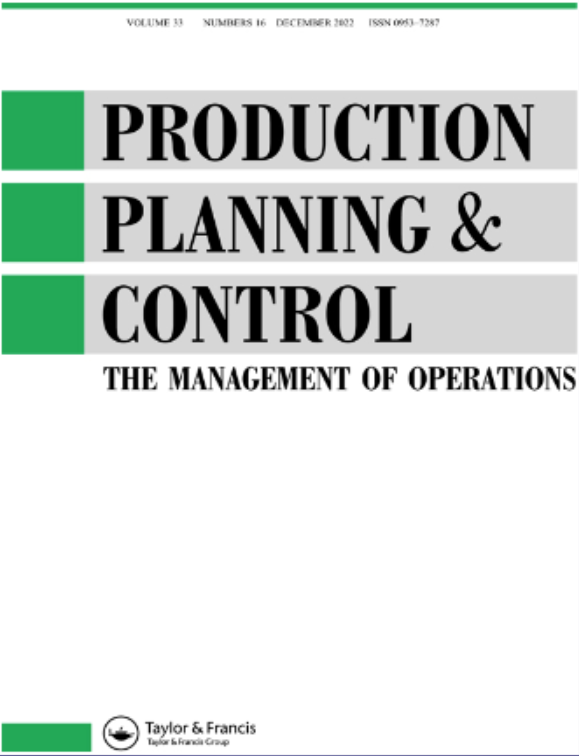应用工业4.0工具,推动循环经济,实现供应链运营的可持续性
IF 5.4
3区 管理学
Q1 ENGINEERING, INDUSTRIAL
引用次数: 13
摘要
本研究考虑了南非制造企业如何有效地使用工业4.0工具和应用程序来实现供应链运营的可持续性。组织信息处理理论(OIPT)建议工业4.0工具应该增强操作能力。对南非制造商进行了调查,收到了200份答复。采用偏最小二乘结构方程模型(PLS-SEM)对概念模型进行检验。我们提供的证据表明,使用工业4.0工具来提高资源消耗率,减少浪费和污染最有可能增强可持续供应链运营。生产团队的控制导向和灵活导向都增强了他们从工业4.0的使用中产生积极可持续成果的能力。结果可能无法推广到其他欠发达国家,这些国家正在努力实施工业4.0,但应该推广到其他发展中国家。这项研究清楚地表明,在工业4.0应用的推动下,通过改善资源消耗、减少浪费和污染,存在实现可持续供应链运营的可行途径。本文章由计算机程序翻译,如有差异,请以英文原文为准。
Application of Industry 4.0 tools to empower circular economy and achieving sustainability in supply chain operations
Abstract This study considers how effective South African manufacturing enterprises have used Industry 4.0 tools and applications to achieve sustainability in supply chain operations. Organization Information Processing Theory (OIPT) suggests Industry 4.0 tools should enhance operational capabilities. South African manufacturers were surveyed and 200 responses were received. Partial least squares structural equation modelling (PLS-SEM) was used to test the conceptual model. We provide evidence that using Industry 4.0 tools to improve resource consumption rate and reduce waste and pollution is most likely to enhance sustainable supply chain operations. Both the control orientation and the flexible orientation of the production team enhance their ability to generate positive sustainable outcomes from Industry 4.0 use. The results may not be generalizable to other, less developed nations, which struggle with Industry 4.0 implementation but should generalize to other developing nations. This study has a clear implication that there are viable pathways to sustainable supply chain operations, driven by Industry 4.0 applications, through improving resource consumption and reducing waste and pollution.
求助全文
通过发布文献求助,成功后即可免费获取论文全文。
去求助
来源期刊

Production Planning & Control
管理科学-工程:工业
CiteScore
19.30
自引率
9.60%
发文量
72
审稿时长
6-12 weeks
期刊介绍:
Production Planning & Control is an international journal that focuses on research papers concerning operations management across industries. It emphasizes research originating from industrial needs that can provide guidance to managers and future researchers. Papers accepted by "Production Planning & Control" should address emerging industrial needs, clearly outlining the nature of the industrial problem. Any suitable research methods may be employed, and each paper should justify the method used. Case studies illustrating international significance are encouraged. Authors are encouraged to relate their work to existing knowledge in the field, particularly regarding its implications for management practice and future research agendas.
 求助内容:
求助内容: 应助结果提醒方式:
应助结果提醒方式:


